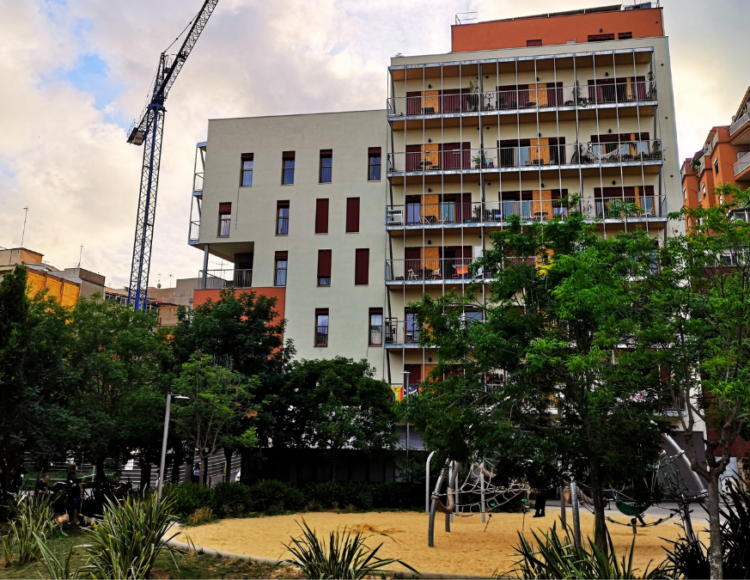On December 7, 2023 the European Parliament and Council have found common ground on the revision of the Energy Performance of Buildings Directive (EPBD) which will be a decisive piece of legislation for renovation or building homes, as well as for slashing CO2 emissions. In the months of negotiation, Housing Europe tirelessly insisted that an ambitious transition towards more energy-efficient and green sector must be a catalyst for more inclusive and future-proof homes, rolling out renovations that can reach all households. Now, the recast is almost at a final stage and a vote in the Industry, Research, and Energy Committee has been scheduled on January 23. The implementation phase of the EPBD will come when social and affordable housing providers would be half-way through in their ambition to renovate 4 million homes by 2030. What does this mean?
Public, cooperative, and social housing providers have been working hard to deliver on their promise from November 2020 – to refurbish 400,000 homes a year while also ensuring that the rent for low-income households remains affordable and that enough new homes are made available. A global pandemic, massive increase in material and energy prices have come in the way, delaying expectations and yet, we have seen exemplary social housing projects in different corners of Europe where affordable homes are being revamped at a district level, with new technology, taking the opinion of tenants or residents on board. Once agreed, the EPBD targets will come into the picture of work that had already started.
Policymakers have listened that “when it comes to climate-proof and affordable homes, many roads lead to Rome”
The primary energy use in buildings must decrease by 16% between 2020 and 2030 and by at least 20% by 2035. These binding targets can be achieved in various ways – by renovating entire districts, relying on Minimum Energy Performance Standards (MEPS), or a mix of other measures that will lead to the renovation of the building stock. Housing Europe members have been proving that one can take multiple paths that are just and ‘fit’ for 55% while adapting to different contexts, climates, and starting points.
The rules for the Energy Performance Certificates remain unchanged
EU policymakers have decided to preserve the existing energy performance certificate (EPC) scale which is used to estimate the energy consumption of a house or apartment. This decision would give more stability and reassure social housing providers that they can continue with the ongoing renovation strategies, allowing them to proceed with the work without having to review entire labelling scheme.
New buildings must be CO2 free and with solar installations as of 2030
Newly built social or private homes will need to be zero-emission buildings as of 2030, while remaining energy needs should come from, if technically and economically feasible, renewable and/or energy efficient energy sources. In addition to the climate goals, a major task for the social housing sector would remain the dire need to supply new homes as a response to the lack of affordable homes, especially in overheated markets and attractive cities.
Another considerable change that would come with the new EPBD would be that starting in 2030, new buildings would also have solar installations when this is technically suitable and financially feasible. This will be most buildings while some exceptions would still be possible when for instance the roof has no exposure to sunlight.
Phasing out of fossil fuel boilers by 2040
Social and affordable housing providers now have a clear vision and timeline to work with when it comes to fossil fuel boilers which would not be allowed in homes after 2040. Before this, Member States will no longer be allowed to subside stand-alone fossil fuel boilers as of 2025. Hybrid heating systems will however still be eligible for subsidies and are still allowed to be used after 2040.
The big elephant is still in the room
The moment for EU governments to attract larger investments has come to ensure that they would not only be able to upscale renovation but bring social benefits for people and their neighbourhoods. As decarbonisation frontrunners, social and affordable housing providers are available to share best examples of renovation of the building stock while preserving social fairness and affordability. They will, however, urgently need financial support to continue and accelerate the decarbonisation trend, ideally though a combination of energy efficiency and fuel switch measures, so that they can also pursue the mission of providing 4 million green, affordable homes.
Further readings:
Housing Europe’s ambition to renovate 4 million affordable homes by 2030
